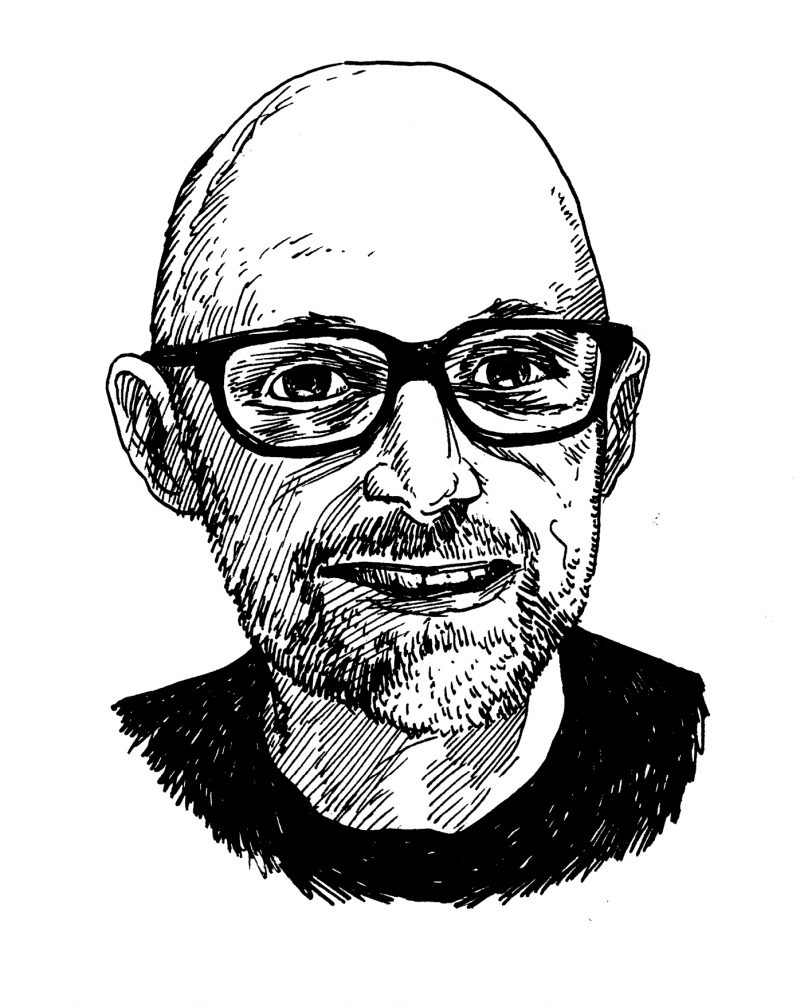Like many disaffected teenagers of the early ’80s, Richard Melville Hall found succor in the noise of punk. He began taking the Metro-North train from his home in Connecticut to see shows in New York City, falling not only under the sway of hardcore but also of Lou Reed, Dylan Thomas, and artists from George Maciunas’s Fluxus scene. While now a separate musical-genre signifier, at that time punk meant an embrace of outsider sounds, so it was de rigueur to accept them all: reggae, country, hip-hop, new wave, Afropop, disco.
Receiving his nickname in homage to a distant Melville in his family tree, Moby played in a few punk bands before replacing his bandmates with machines, ultimately moving to the forefront of the early-’90s electronica wave. He was all but forgotten by 1999, when he released Play, his at-first-ignored fifth album, constructed primarily with small samples of old blues and gospel recordings. But Moby was at the vanguard of slotting his music in unsuspecting places—advertisements, especially—and Play went from overlooked to inescapable. Same with Moby’s bald visage: he parlayed his electronic music-making anonymity into celebrity-grade ubiquity, which meant invites to art-gallery openings in lower Manhattan, but also pop-cultural ridicule from everyone: Joan Rivers, Eminem, Will Ferrell.
Now living in Los Angeles, Moby returned briefly to New York to promote his most recent album and a book of photography documenting the particular estrangement that comes with playing before thousands of adoring fans every night. We spoke in his Manhattan apartment. Before ascending to his roof deck on a particularly lovely April day, I found myself in his ascetic bathroom, which I recalled from an episode of MTV’s Cribs. There now hung a shower curtain and mirror where before there had been none. No doubt, Moby has changed as well.
—Andy Beta
I. GO THROUGH THEIR PURSE WHILE THEY’RE IN THE SHOWER
THE BELIEVER: How is it when you come back to New York? You’re this quintessential New Yorker, so it must be weird.
MOBY: I was born here, up on 148th Street. First time I got drunk in the East Village was 1978, and I’ve lived in or near lower Manhattan for all my life. A few things happened, though. I stopped drinking. Being a drunk in New York City is one of the greatest things in the world. Certain places have a specific or accidental utility. Perth, Australia, is a great place to be a surfer. The institutions accommodate being a surfer. And lower Manhattan is a district for drunks. For the thirty years I was a drunk, lower Manhattan was flawless. No one comes to New York to be healthy; they...
You have reached your article limit
Sign up for a digital subscription and continue reading all new issues, plus our entire archives, for just $1.50/month.
Already a subscriber? Sign in





